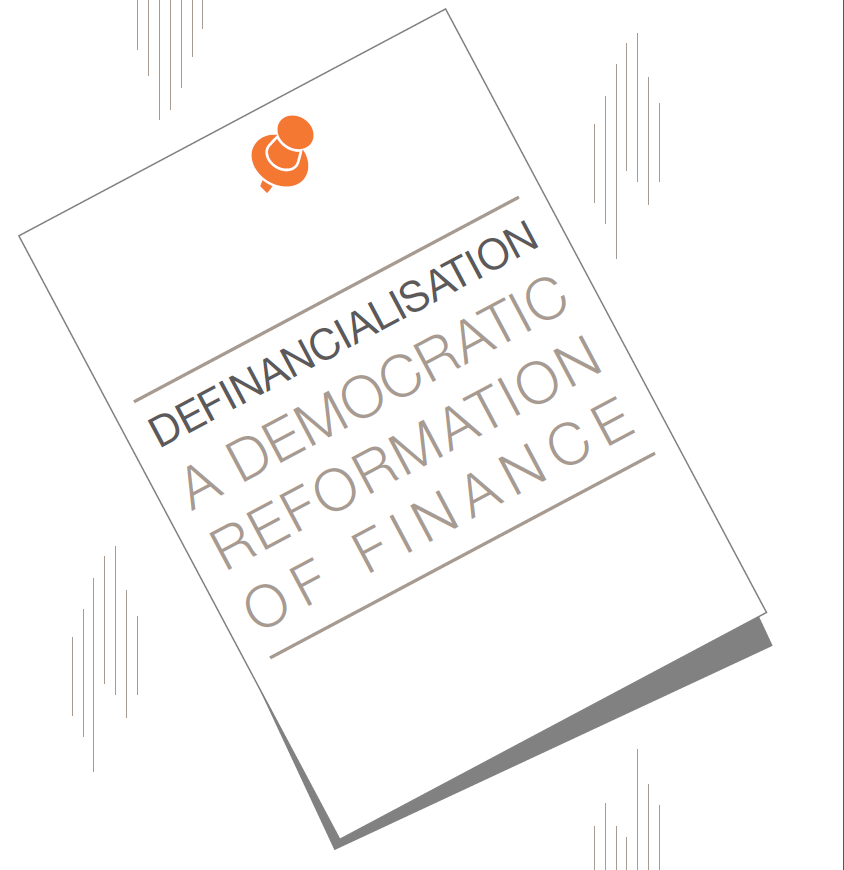IPPR’s report , “Definancialisation a democratic reformation of finance”, sets out an ambitious agenda for ‘definancialisation’, for rolling back the “socially useless aspects of modern finance” and advancing both its productive potential and the democratic interest over its activities and objectives.
Financialisation – the “increasing role of financial motives, financial markets, financial actors and financial institutions in the operation of the domestic and international economies” – is arguably the most important structural change in British capitalism in the last 30 years. The rise in the scale, scope and profitability of financial activity relative to the size of the UK’s economy in this period is well-known. For example, the balance sheet of the UK banking sector grew from 40 per cent of GDP in 1960 to 450 per cent in 2010. The consequences of financialisation more broadly, both positive and negative, are also well understood.
According to the report the financial implosion of 2007–08 should have been used as a “provocation to rearrange the place of finance in our economic lives”. Instead, six years on from a financial crash that cost British society the equivalent sum of fighting a major war, too little has changed. Financial crisis has ossified into relative political stasis. Contemporary policy debates are either inadequate or focus on treating the consequences of our financial system rather than changing its underlying structures.
In this report IPPR argue for structural reform to address the deeper institutional arrangements that underpin financialisation. The report says that by doing so, its recommendations should help to build a financial system that operates without public subsidy (the ‘bailouts’), where rent-seeking is limited, and where the relationship between finance and production is substantially tightened.
IPPR set out two principles for this programme of reform:
- The financial system is a vital utility and the flow of credit to the real economy an essential public good which should be guided by and made accountable to democratic institutions. However, this does not mean it believes rigid, explicit targets should be set. Rather, an overarching framework should be established to ensure that credit is better directed into expanding the productive capacity of the economy.
- It believes that there are limits to regulation, necessary though it is. This will require building or reforming institutions, both public and private, that are better able to create and sustain equitably shared growth.
These principles lead to three broad objectives:
- Targeting credit at the productive economy – principally by giving the Bank of England the mandate to monitor and guide credit creation and flow
- Reassert the public interest in the financial system
- Establish a Monetary Commission to investigate the UK’s monetary system
- Strengthen equity ratio requirements to remove the implicit public subsidy to banks
- Create a Financial Product Board to approve new UK-traded financial products
- Establish an EU credit-ratings agency funded by the financial transaction tax
- Invest the gains of financialisation to help fund public expenditure – by establishing a national wealth fund that is able to accumulate some of the gains of financialisation and support the country’s long-term service and investment needs.

